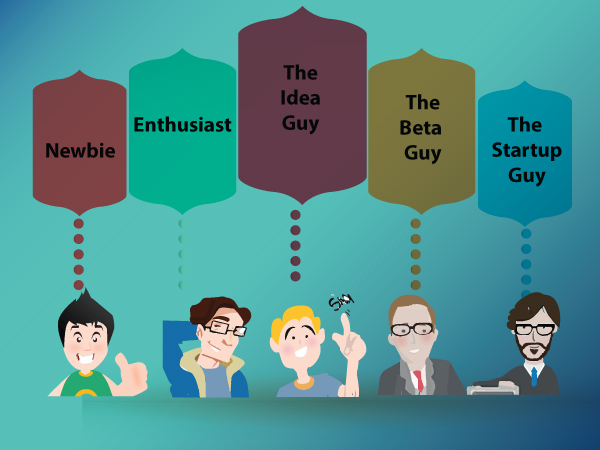
Can anybody think of a good business idea for a male entrepreneur?
2/8/2018
By Heather Wentler
A few weeks ago, a reporter from a small business blog sent the following request out over HARO, a listserv that connects journalists to expert sources:
“I am looking for any ideas or suggestions on small business ideas specifically for women.
- What are good businesses for women to get started with?
- What are some tips to help women get started in the business world?
- Any other ideas or tips for women entrepreneurs would be helpful.
Thank you!”
That first question had me shaking my head, rolling my eyes, and restraining myself from responding with a heated “WTF are you thinking? #DoyenneMoment.”
Think about it. When have you ever heard someone ask, “What kind of businesses should men run?” Nobody is out counseling men to open “man-friendly” businesses like hardware stores and construction companies, or businesses that give them time to make an appearance at their kid’s Little League game once a season to secure the Dad of the Year award.
This question is just one of many examples of the double standard that is applied to women entrepreneurs.
I won’t pretend that I don’t know where this question comes from. Yes, the numbers do show that women more typically run businesses that allow them to take care of their kids (because God knows their husbands aren’t expected to sacrifice their career aspirations to do it). These “lifestyle” businesses are typically mom-and-pop shops, child care centers, personal care shops, consulting businesses, or freelance businesses that were never meant to grow beyond one or two employees. Only 2% of women-owned businesses ever reach $1 million in revenue.
But that narrative is not a reflection of women’s abilities; it’s a reflection of the many roadblocks women entrepreneurs face. Articles like the one this reporter was researching do us no service in trying to tear those roadblocks down. Rather, they reinforce gender stereotypes about the types of businesses suitable for women, both to start and to run.
Because of these narratives, women’s entrepreneurship gets seen as a ‘good thing for women to do,’ instead of ‘vital to the economic growth of the country.’ And groups that support women entrepreneurs, like the Doyenne Group, get categorized as ‘nice things for the women to do’ or ‘where the women should go’ while the real entrepreneurs (a.k.a. male entrepreneurs) get all of the funding and support.
In the last year alone, we had 1,400 attendees at Doyenne programming and events and held over 170 hours of one-on-one coaching with women entrepreneurs. Doyenne has helped these entrepreneurs take the next step to develop, pivot, or grow their businesses. And yet, in Madison, we’re still not respected on the same level as our peers within the community who are supporting far fewer entrepreneurs.
The history that has created this perception of women’s entrepreneurship is not as ancient as some would like us to think. It was only in 1974, with the passage of the Equal Credit Opportunity Act, that women in the U.S. were first allowed to apply for funding without a male co-signer or co-founder for their business.
So when you think about where we’re at in this timeline, we’re still changing generational thought about who should be getting money. And we’re breaking down what’s been taught to our generation.
The women we work with often tell us stories of getting asked, “Who’s the guy on your team?” when they’re fundraising for their startups.
Women get subjected to a double standard when they apply for money, which is exactly why organizations like ours and WWBIC need to exist. We were created to address a very real problem — women are still being cut out of all access to funding. But now, Madison’s entrepreneurial ecosystem has found a way to turn organizations that fund women into another roadblock.
Women in Wisconsin are directed to go to WWBIC and Doyenne for funding strictly because they are women, even when their business isn’t appropriate for the type of funding our organizations provide.
Raising money is hard no matter who you are. But saying that women should seek funding from women-led or women-targeted agencies before seeking larger dollars is putting up a roadblock. It makes women think they’re not ready to seek investment dollars if they haven’t already gotten Doyenne or WWBIC’s stamp of approval, but meanwhile male entrepreneurs walk straight into pitch meetings with nothing more than a napkin sketch. This mindset makes women think small. Instead of thinking about the impact they could make and the business they could create with $500,000 or $1 million, they’re stuck thinking about how they could stretch $50,000 to cover their most basic expenses.
We’re tired of this narrative. That’s why we’re changing the ecosystem.
What are businesses that are good for women to start? Technology apps, high-tech manufacturing companies, marketing agencies, consumer goods companies — literally any business that they dream of.

